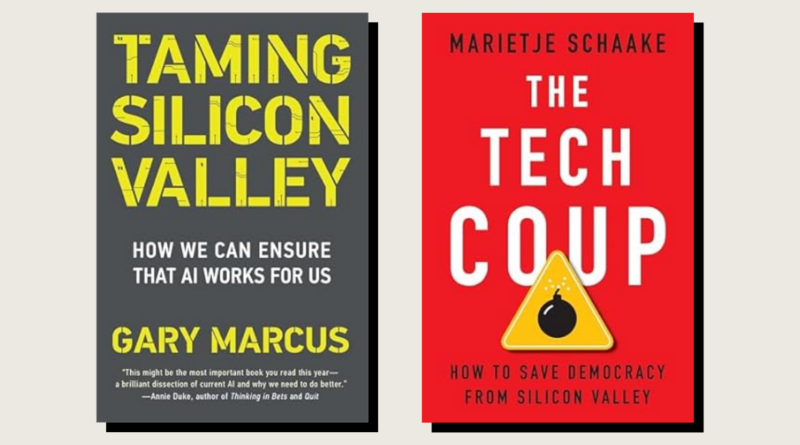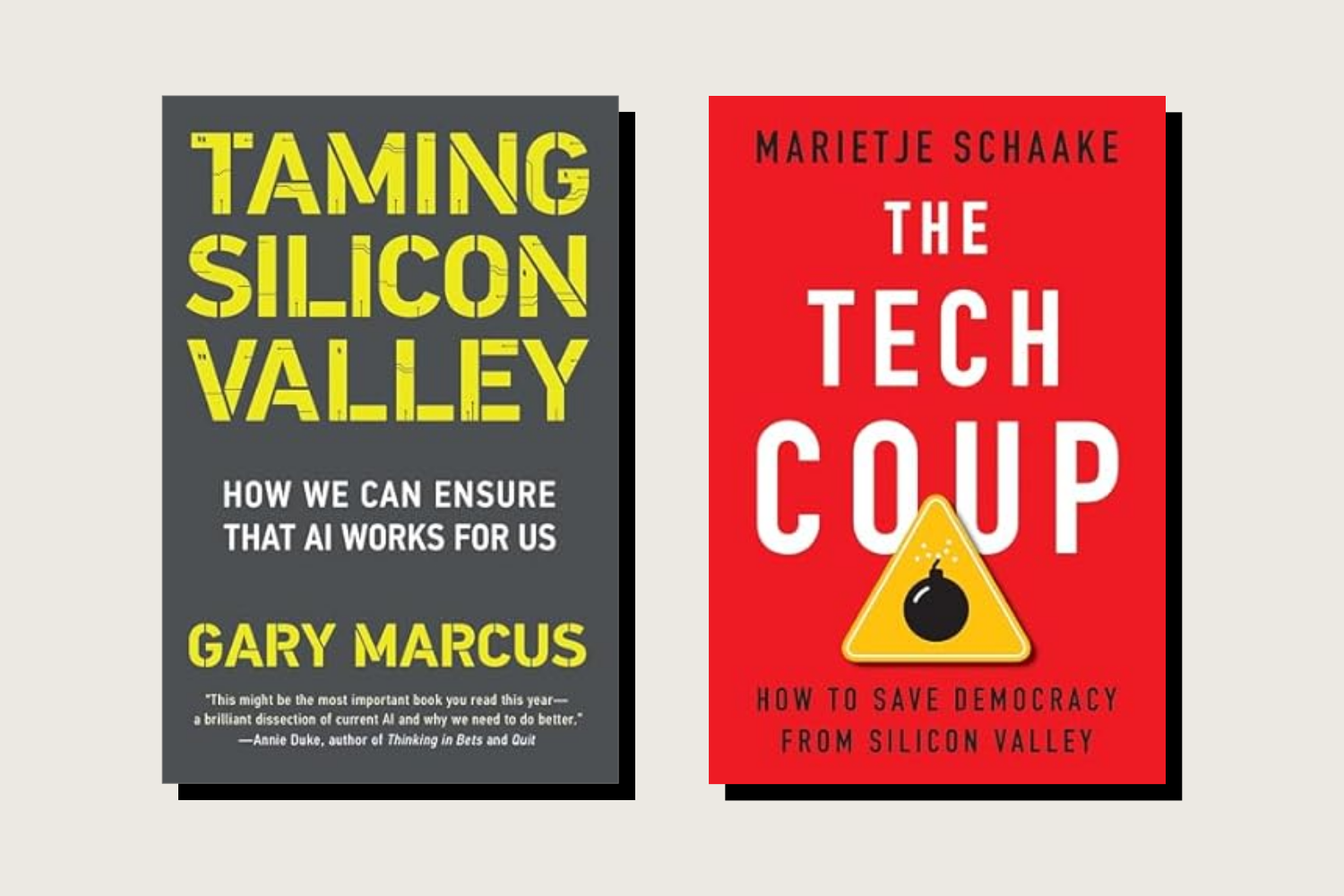How Technology Has Destroyed Democracy
As the United States prepares for its high-profile presidential election on Nov. 5, fears have grown about technology’s ability to disrupt elections. Concerns about social media and its role in spreading propaganda – fueled by Washington’s adversaries – have been in the public conversation for a decade, but officials warn that efforts to interfere with China, Iran and Russia have entered the 2024 elections.
One of the most frightening things is the impact of artificial intelligence, especially large-scale language models—like OpenAI’s GPT-4—that can generate text, audio, and video on demand and turbocharge propaganda. . While there is no concrete evidence that most of the elections held so far this year have been influenced by false information generated by AI, scientist and AI expert Gary Marcus says it is a disaster waiting to happen. it happens.
As the United States prepares for its high-profile presidential election on Nov. 5, fears have grown about technology’s ability to disrupt elections. Concerns about social media and its role in spreading propaganda – fueled by Washington’s adversaries – have been in the public conversation for a decade, but officials warn that efforts to interfere with China, Iran and Russia have entered the 2024 elections.
One of the most frightening things is the impact of artificial intelligence, especially large-scale language models—like OpenAI’s GPT-4—that can generate text, audio, and video on demand and turbocharge propaganda. . While there is no concrete evidence that most of the elections held so far this year have been influenced by false information generated by AI, scientist and AI expert Gary Marcus says it is a disaster waiting to happen. it happens.
“I’m sure we’ll see a lot of AI-generated lies in the next American election,” Marcus said. Foreign Policy. Troubling examples early in this year’s election cycle include a fake robocall in January that used President Joe Biden’s voice to discourage voters from going to the polls in the New Hampshire Democratic primary and a fake video that officials called Russia last week, which showed the survey. a Pennsylvania worker spoils the election.
“I might be willing to accept that we’re seeing a little less than I expected. But we’re seeing some of it, and it only takes one close election to be changed by this to undermine it.” democratic structure,” Marcus said. “I think it would be foolish to say: ‘Yeah, there hasn’t been a major crisis, so we’re fine here.’ That would be like saying we built a fleet of steamships, so this is invincible, and oh, you hit an iceberg.”
Marcus said that this year’s election was part of what prompted him to write and publish his new book so quickly, Taming Silicon Valley: How We Can Let AI Do It For Us. “I wanted to make people aware, while those elections are happening, that the AI strategy is very important,” he said. “We ruined social media, and we can’t do the same with AI.”
Marcus’s book presents the current state of artificial intelligence—especially focusing on the creation of AI that powers large forms of speech—and the greatest dangers it poses to society. He spends a lot of time warning about the influence of Big Tech on politics as well as the dangers of the government giving established players like Google, Meta, Microsoft, and OpenAI too much freedom without reining them in.
There is more public conversation surrounding AI initiatives today than in the early days of social media, when policymakers were unable to recognize the risks of the technology.
Last year, Marcus testified in Congress along with OpenAI CEO Sam Altman, both highlighting the risks of the technology and Altman saying he accepted independent regulation and oversight—although Marcus later said the following behavior Altman’s and OpenAI’s advocacy against European AI laws suggests otherwise. (“It’s becoming more and more clear that the nature of those things [Altman] we said when we stood side by side in the Senate we were not completely correct,” Marcus said Foreign Policy.)
Taming Silicon Valley: How We Can Let AI Do It For UsGary Marcus, MIT Press, 240 pp., $18.95, September 2024; The Tech Coup: How to Save Democracy in Silicon ValleyMarietje Schaake, Princeton University Press, 336 pp., $27.95, September 2024.
But Marcus said policymakers are still at risk of making the same mistakes.
“You can’t allow a takeover where big companies make the rules. You have to monitor the situation, and bad habits can take root in the culture and the law,” he said. His book lists a series of possible fixes to the problems of AI development and regulation, including privacy protections, greater AI literacy, and a strong AI regulatory agency. United States and around the world.
“I think Washington is still cozying up to Silicon Valley and taking Silicon Valley at face value,” Marcus added. “Washington has to wake up and realize that, in fact, Silicon Valley is in the midst of a major power struggle.”
That power issue is an adaptation of another book published in September: by Marietje Schaake The Tech Coup: How to Save Democracy in Silicon Valley. Based on his ten years of experience as a member of the European Parliament until 2019 and his recent political work as a member of Stanford University’s Cyber Policy Institute and the Human-Centered Institute With AI, Schaake argues that the fast-paced processes of our lives are gone. private companies as custodians of rights and services guaranteed by governments, but without the necessary accountability.
Governments, he says, have willingly “delegated” those important jobs to a few powerful CEOs. Examples abound in this book: Amazon oversees more than a third of the world’s cloud computing capacity, Palantir is the provider of choice for at least a dozen governments’ data systems, and Meta’s social media website has had a huge impact around the world. speech.
“The enormous power of tech companies … is destroying democracy,” Schaake said in an interview Foreign Policy. “This vision is often lost because of the many events that are very important and urgent to solve, but that kind of blurs the vision of the big picture. I wanted to write that big challenge instead of talking about disinformation or cyberattacks or election interference,” he added.
It’s not just the tech giants, either. Schaake points out that the critical technologies that keep our daily lives running, from submarine cables to data centers to semiconductor chips, are controlled are private companies—not to mention spyware and facial recognition software.
While he acknowledges the anti-trust debate about technology companies that has been on the rise on both sides of the Atlantic in recent years, he believes that a better way for governments to deal with these companies would be to consider the dangers they pose to democracy itself. not just economic risks.
“Spyware companies are very powerful and influential and anti-democratic, but they will not reach the limit of dishonesty,” Schaake explained. “By identifying them as having significant social influence, there should be possible collaborations that currently do not exist under one roof.”
There are few better examples of Schaake’s fear than the richest man in the world. Elon Musk has a level of political influence that even his wealthiest peers can’t claim: Ukraine’s war effort against Russia and the US space program are all dependent on the company his SpaceX, and he has put on the $44 billion algorithmic megaphone he bought. brand of Twitter (now X) to try to return former President Donald Trump to the White House. But Schaake thinks it’s a mistake to focus on Musk or any single tech billionaire.
He said: “Elon Musk looks special, but he is not. “Private actors in the digital space have a lot of unknown power, and that is dangerous for democracy.”
There are signs that governments are pushing back against the tech giants — including Musk himself. Brazil banned X earlier this year due to Musk’s refusal to ban accounts accused of spreading falsehoods in the country. And the move came shortly after Telegram founder Pavel Durov was arrested in France for not doing enough to prevent illegal content on the platform.
Yet those are still isolated examples, and much of the world’s political will to act may be determined by the outcome of next week’s election. Trump has suggested he may put Musk in charge of a “efficient government” that would give the billionaire clear political power, and Republican vice president JD Vance has suggested pulling out of NATO if Europe controls Musk’s companies. .
“This kind of evolution between the political power of the US and the private power of Musk, and perhaps others, is unheard of,” Schaake said. “Yes [Democratic candidate and Vice President] Kamala Harris, we don’t know that much – I hope you see this as an important issue for everything the Democratic Party should care about controlling the superpowers of tech companies . “
Regardless of the outcome of the election, Schaake said the world needs to rethink the relationship between governments and technology companies.
He said: “My criticism of democratic governments is that they have not used their privilege and their supremacy to create a comprehensive framework – or a comprehensive one – about governing science.” “If the authorities choose to punch the table, they are [can] they still have a lot of power.”
#Technology #Destroyed #Democracy

